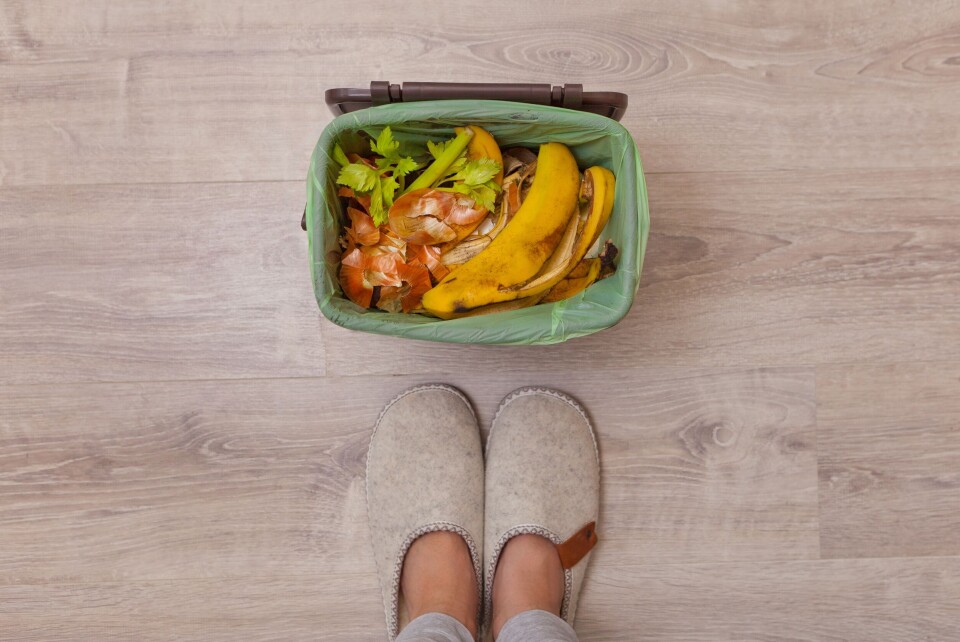-
Burglaries: the French cities and towns most - and least - affected
New official stats have been released with significant geographical differences
-
Know your cheeses and their seasons: which to eat in France in April
A wide selection of fresh cheeses are available this month
-
Main ski stations in French Pyrenees now closed - but five remain open
Busy Christmas period saw stations receive more skiers than previous year
All homes in France must have access to food waste bin from next year
Each person in France throws away around 30kg of food per year, including 7kg still in its packaging

Local authorities in France must provide all households with a means of keeping their food waste apart from other rubbish by January 1 next year.
That means a bin - either individual or collective - to keep food waste separate from glass, packaging and general waste.
It is part of a drive to help the environment by using food waste for fuel or compost instead of burning or burying it at landfill sites.
The French government says 10 million tonnes of food is wasted or lost each year, costing €16 billion.
Each person in France throws away around 30kg of food per year, according to France’s ecological ministry, including 7kg still in its packaging.
Read more: ‘Best before’ food labels are changing in France to reduce waste
Paris trial reveals food waste challenges
Paris rolled out a food waste collection trial in 2017, expanding it in 2019 to cover the 2nd, 12th and 19th arrondissements.
But, according to Colombe Brossel, deputy mayor of Paris in charge of public space cleanliness and waste reduction, reuse and recycling, the “outcome was not satisfactory” in terms of how much was collected.
The trial taught the Paris authorities numerous lessons, including that relatively few inhabitants sort their food waste.
Ms Brossel said the issue was not the inhabitants but the buildings. In the 2nd arrondissement, the authorities were only able to add an extra bin in half of buildings. Across Paris, only 60% of buildings have this space.
As such, going door-to-door to collect food waste in the most densely populated area of France - and one of the most densely populated areas in the world - does not work in the same way as it would outside of Paris.
The authorities have decided that instead of giving every building a brown food waste collection bin, they will put out collection points in the street. The aim is to ensure that all Parisians have a collection point no further than 300m from their homes.
How to convince the reluctant?
Helder De Oliveira, director of a Paris region rubbish observatory - the Observatoire régional des déchets d'Île-de-France (ORDIF) - said struggling to get people to recycle is not a new problem.
“We have been selectively recycling rubbish for 30 years, yet the majority is not recycled. Almost 60% of glass bottles are recycled, as is 30% of cardboard and 20% of plastic.”
Mr De Oliverira noted there are four ways to increase recycling uptake: “effective logistics, communication, regulation and financial incentives”.
However, the latter is hard to implement in an urban setting compared to a rural one.
Collection points have a bad reputation for being smelly, attracting rats and being complicated to use.
Catherine Boux, deputy general director of waste use and valorisation at Syctom, the Paris region’s main waste management company, wants to combat this prejudice.
She said almost all food waste could go in collection bins, including meat and fish, as it is used to create methane for France’s gas network.
Read more: Organise your fridge, know labels: French experts’ food-saving tips
How can I reduce food waste?
-
Avoid buying too much: Plan meals a week ahead so you know what you need to purchase and how much of it.
-
Look in the fridge and cupboards before you go shopping to avoid buying something twice.
-
When you go shopping make a list and stick to it. Resist promotional offers as they encourage you to buy more than you need.
-
Keep leftovers refrigerated and stored in transparent containers so it is harder to forget what you still have to consume.
-
Be vigilant about expiry dates. Freeze meat and fish that will not be cooked within two days of purchase.
-
Know which fruits should be placed in the refrigerator and which can stay on the counter and ripen
-
Collect dry bread or crusts if no one wants them. You can make croutons or breadcrumbs. Bread pudding is also a delicious way to use up leftover bread.
Related Articles
Biogas: French town converts fallen leaves into energy
Label shows which French supermarkets are fighting food waste
























